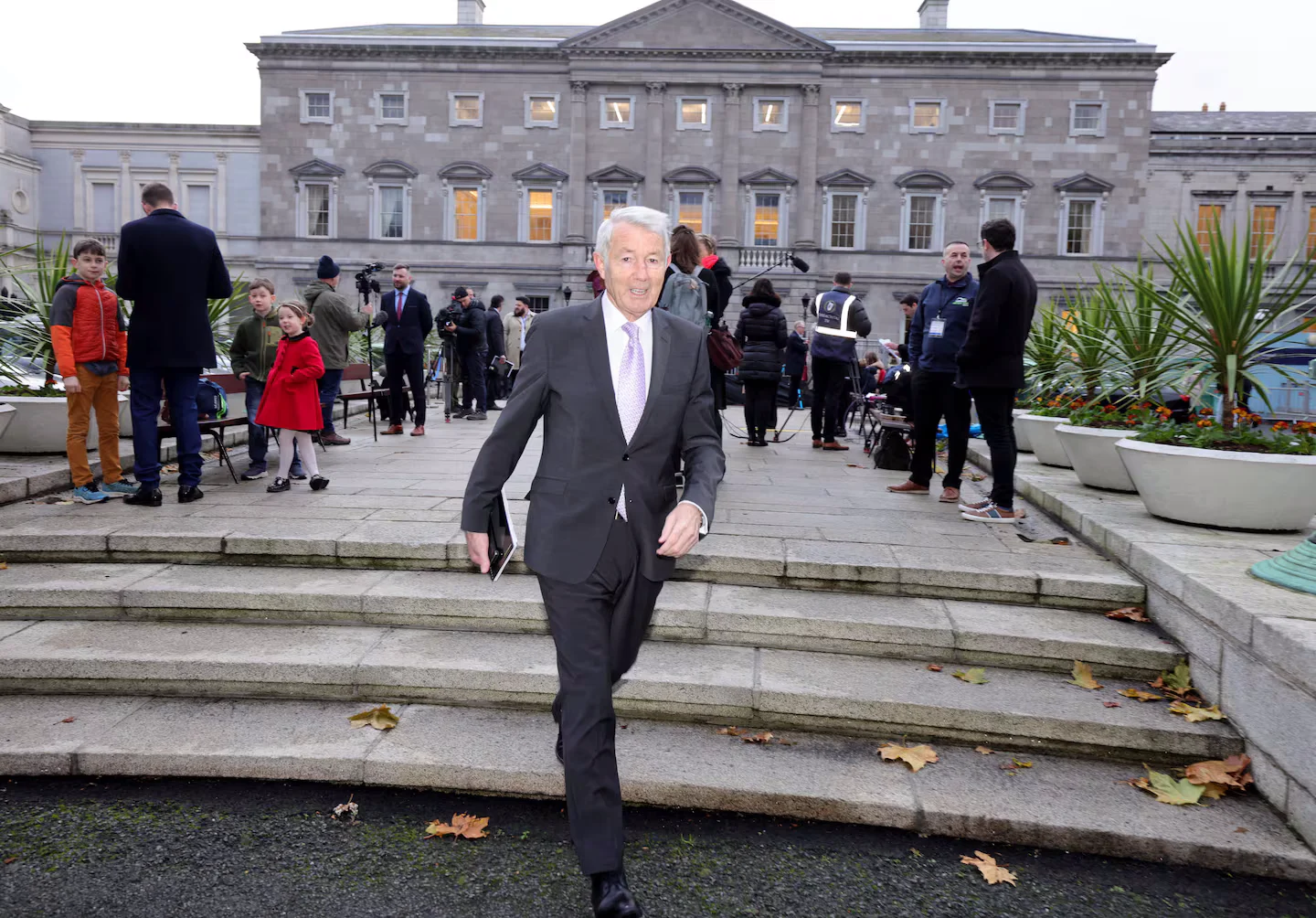
Newsletter Subscribe
Enter your email address below and subscribe to our newsletter

Enter your email address below and subscribe to our newsletter

The submission of a Garda file to the Director of Public Prosecutions (DPP) concerning the Moriarty Tribunal findings has sparked fresh debate, not only about corruption but also about the Irish legal system’s ability to deliver timely justice. The file was sent in November 2024, just before the general election — a staggering 14 years after the tribunal’s findings of corruption against former Fine Gael Minister Michael Lowry.
This revelation has many questioning whether this long delay is a genuine effort at accountability or a sophisticated form of legal corruption designed to shield influential figures.
The Moriarty Tribunal, which began in 1997 and concluded in 2011, investigated political corruption in Ireland. It found that Michael Lowry, a former Fine Gael minister, had provided insider information to businessman Denis O’Brien, helping him secure the country’s first GSM telecom licence. In return, Mr. O’Brien was found to have made payments to Mr. Lowry totaling IR£447,000.
The tribunal’s report described Lowry’s conduct as “disgraceful and insidious,” stating that he undermined public trust in the political system.
However, despite the damning findings, it has taken over 14 years for the Gardaí to send a file on the matter to the DPP — a move that raises serious concerns about the Irish legal system’s commitment to fighting white-collar crime.
Many observers see the delays in pursuing charges as a form of legal corruption — a mechanism to protect politically connected individuals. Michael Lowry was a Fine Gael minister at the time of the GSM licence award, and Denis O’Brien is a well-known major donor to the party.
The timing of the Garda file submission, coming just before the 2024 general election, has also raised eyebrows. The lengthy delay appears to have conveniently kept Lowry’s involvement out of the political spotlight for years.
One critic described the situation as “phoney justice,” pointing out that meaningful accountability cannot come decades after the corruption took place.
“The corruption offences occurred around 30 years ago. The Moriarty Tribunal made its findings 14 years ago. Gardaí submitted the file to the DPP 14 years later. Surely, this phoney justice cannot be taken as any form of accountability, let alone justice. These delays are a sophisticated form of ‘legal’ corruption on the part of Fine Gael to protect both a major donor, Denis O’Brien, and a corrupt facilitator, former Minister Michael Lowry.”
Michael Lowry has responded to the news of the Garda file submission, expressing surprise and maintaining his innocence. He stated that he met with Gardaí voluntarily last year and fully cooperated.
“I received a request for assistance from An Garda Síochána. I freely, voluntarily, and willingly met with them on one occasion and was fully cooperative. At no point was it suggested that any charges were being contemplated against me,” Mr. Lowry said.
Lowry continues to insist that there was no wrongdoing in the awarding of the GSM licence, stating that the process was conducted fairly by experienced civil servants and independent experts.
Despite the controversy, government formation talks between Fianna Fáil, Fine Gael, and Independent TDs are ongoing. Fianna Fáil leader Micheál Martin, who may need support from the Regional Independents group, including Lowry, to become Taoiseach, has acknowledged the need to reflect on the new developments.
“We have negotiated with the Regional Independents Group. I have met or spoken with most of them, including some who may hold ministerial positions — but not Deputy Lowry,” Mr. Martin clarified.
Meanwhile, talks with Independent TDs, including Seán Canney, Marian Harkin, and Noel Grealish, are intensifying in an effort to form a sustainable government program.
The decades-long delay in pursuing accountability in the Moriarty Tribunal case raises broader questions about political interference in Ireland’s justice system. Critics argue that the delay is not coincidental but rather a calculated move to protect those with deep political connections.
As talks to form a new government continue, the controversy surrounding Michael Lowry and Denis O’Brien could cast a shadow over any coalition involving Fine Gael. The question remains: Is justice being served, or is this another example of political power shielding those accused of corruption?
Source: Information based on recent reports regarding the Gardaí’s submission of a file on the Moriarty Tribunal findings to the DPP.